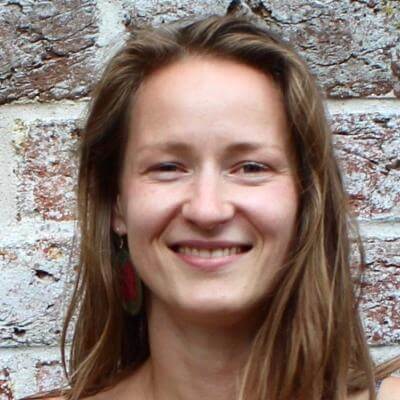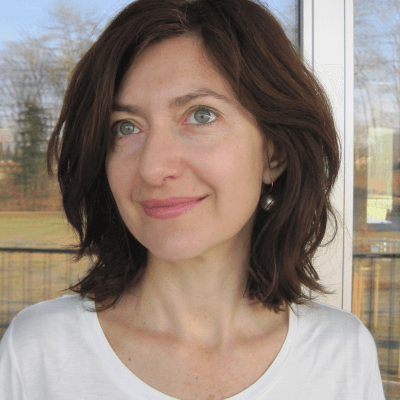Legitimacy under Pressure: The Role of Electoral Observation
On 6 January 2021, supporters of then President Donald Trump attacked the US Capitol building in Washington DC, claiming that the election had been “stolen by emboldened Radical Left Democrats”. Two years later, on 8 January 2023, a mob of Jair Bolsonaro’s supporters attacked Brazil’s federal government buildings in Brasília (Praça dos Três Poderes, Three Powers Square), expecting a military intervention to overthrow President Lula da Silva, who had come to power after winning the recent elections. Both scenarios share two features: a high degree of polarisation among voters and a widespread distrust of the electoral process. Together, these features could ultimately prove devastating for democracy – indeed, two-thirds of Republican voters in the US (and nearly three in ten Americans) continue to believe that the 2020 election was stolen from Donald Trump and that President Biden was not legally elected.
By their nature, elections are mainly a domestic affair: “Genuine democratic elections are an expression of sovereignty, which belongs to the people of a country, the free expression of whose will provides the basis for the authority and legitimacy of government.” However, international observation can play – and on many occasions has played – a crucial role in avoiding violence and providing legitimacy for the electoral process.
Electoral observation missions (EOMs) are organised by independent actors, typically from another country or from international organisations or national non-governmental organisations. These missions do not prevent electoral fraud, but “can serve as a conflict prevention mechanism, providing an impartial assessment of the elections, defusing tension and by [their] very presence deterring fraud”. The three fundamental principles of an EOM are impartiality, neutrality and objectivity. Elections must be inclusive, fair and competitive.The three fundamental principles of an EOM are impartiality, neutrality and objectivity Meeting these criteria requires observing the legal framework and practices not only on voting day but also during the campaign and until the results are made effective. Among the many organisations deploying electoral monitoring missions are the European Union, the Organization of American States (OAS), the Organization for Security and Cooperation in Europe, the Commonwealth Secretariat, the Council of Europe, the African Union and the Carter Center, an NGO founded by former US President Jimmy Carter. A basic principle of any international EOM is that it only can be deployed at the invitation of the nation state holding elections.
In Brazil, for example, for the second round of voting, the OAS/EOM comprised 56 members of 17 nationalities that spent several weeks in the country. It was deployed in the Federal District and 15 states across Brazil’s territory, as well as in four cities outside the country to observe the voting from abroad. The members of the EOM met with representatives of the two presidential contenders’ campaigns, as well as with electoral and government authorities, academics, and representatives of civil society, certifying that the process was fair.
Before the 1960s, less than 10% of elections were monitored, while by the 2000s almost 80% of all elections were observed. Even if electoral observation is not new, it has grown in parallel with the expansion of democracy. Before the 1960s, less than 10% of elections were monitored, while by the 2000s almost 80% of all elections were observed. However, the quality of the same missions has come under criticism, as some electoral democracies organise “friendly” observations just to validate flawed elections while others do their utmost to prevent missions from doing their job.
The case of the recent elections in Venezuela illustrates perfectly the potentialities and limits of electoral observation. In Venezuela, electronic voting is combined with physical records: people vote on a machine which issues a receipt allowing them to check whether their choice has been registered correctly. This ballot paper is deposited in a ballot box. When voting is closed, before sending the results, a report is issued with the partial sum of votes cast and copies are given to the members of the voting poll. These printed voting machine receipts or actas have a QR code and the signatures of those who were at the counting table. On 28 July 2024, Venezuela conducted the presidential elections. During the night, the National Electoral Council (CNE) interrupted the counting, alleging a system hack (which was never proven) that did not, however, prevent it from announcing the victory of Nicolás Maduro, the incumbent. By 2 August, the official result was 51% for Maduro against 44% for Edmundo González, the candidate of the unified opposition; however, the results provided were not broken down by district, as required by the regulations. In contrast, the opposition claims to have won the election by 67% against 30% and bases this claim on more than 24,000 minutes (81% of the total) collected by hundreds of volunteers organised in comanditos (small commandos), who were in charge of collecting, scanning and centralising the votes on a web page that allows the result of the voting table where the person is registered to be searched by ID number. The comanditos’ action is a great example of a virtuous collective action backed by technology.
the guarantees of the Venezuelan voting system – the paper records – and the activation of the citizenry prevented the result from being falsified. In this case, the guarantees of the Venezuelan voting system – the paper records – and the activation of the citizenry prevented the result from being falsified. The CNE was able to declare a result, but it has been unable to provide evidence of Maduro’s supposed victory. In the scenario described, the only international independent observer present in the country was the Carter Center, which reported that the election took place in an environment of restricted freedoms for political actors, civil society organisations, and the media. Furthermore, the electoral body was found to have demonstrated a clear bias in favour of the incumbent. Changes to the rules, minimal public information on the voting places and arbitrariness were reported, as well as the abuse of administrative resources on behalf of the incumbent, unequal conditions among the candidates and overwhelming positive coverage of the incumbent on television and radio.
In Venezuela, electoral observation could not prevent the fraud from occurring but it was able to expose the deception. In particular, the action of civil society was key to gathering and publishing evidence that proves the victory of the opposition. The dictatorship was exposed.
Results of the election of 28 July 2024

President Nicolás Maduro (United Socialist Party: socialist and populist left) was declared re-elected with 51.2% of the vote against his ten opponents, including Edmundo González Urrutia (independent; 44.2%). Following the government’s refusal to allow independent election observers, nine Latin American countries called for the results to be re-examined in the presence of foreign observers.
Note: Venezuela is an authoritarian regime; the electoral campaign of opposition candidates is restricted in various ways by the government.
Source: Wikipedia
VIDEO: Elections, What For? With Martin Chungong
Research Office, Geneva Graduate Institute
Sources: Perspective Monde (sources: The Economist, Highcharts.com [map], © Natural Earth); Our World in Data; Wikipedia. Map produced by Whybe.
GRAPH: Increase in the Number of Elections (Legislative and Presidential) since 1800
Source: Wikipedia
PODCAST: The European Parliament: is the far right an existential threat? With Laura Bullon-Cassis and Christin Tonne
PODCAST: Who is the US electorate? With Shilpa Jindia and Benjamin Goldfrank
Source: Albert Hirschman Centre on Democracy
PODCAST: Mexico: Violence and Democracy. With Sandra Ley and Javier Aparicio
Albert Hirschman Centre on Democracy
PODCAST: South Africa: democracy & the promise of redistribution. With Mbongeseni Buthelezi and Matias Lopez
PODCAST: America’s Next Chapter: What Trump’s Re-Election Means for the World. With Jussi Hanhimäki
Geneva Graduate Institute
BOX: For or Against Electronic Voting?
The elections in Venezuela on 28 July 2024 added fuel to an ongoing debate: for or against electronic voting? Technology is becoming increasingly important in the organisation of elections: for the compilation and purging of voter lists, the planning of polling stations, the sending of results and the counting of votes. While there is agreement on the advantages of its use for these tasks, electronic voting remains controversial: those in favour point out that it brings speed (fast counting) and efficiency (the procedure reduces the incidence of invalidated votes due to errors). Opponents warn that legal security is at stake in terms of the secrecy of the vote (voters often need help to use the machines), transparency is lost (anyone can supervise the paper count but specialised knowledge is needed to understand how the machine works) and it generates dependence on the private sector (which takes over the logistics for large sums of money).
In Latin America, some countries have electronic voting systems (Brazil, Venezuela) or have implemented pilot programmes (Mexico), while others maintain the paper ballot (Argentina, Uruguay). Regardless of the system, allegations of fraud have become part of the electoral strategy of some leaders such as Donald Trump in the United States, Jair Bolsonaro in Brazil (both with electronic voting) or Keiko Fujimori in Peru (paper ballot). In none of them has it been judicially proven. In any case, the transparency and “auditability” of the electoral system becomes central.
Source: Yanina Welp, “El voto electrónico venezolano”, El Universal, 21 August 2024.
BOX: What are the different voting systems?
There are three voting systems: majority, proportional and mixed. Voting may be direct (as in the presidential election) or indirect (as in the senatorial election). They may comprise a single round or several rounds:
- Majority systems are the oldest: the winner of the election takes all the seats at stake. This is known as “first past the post”. These elections make it easier to create a stable and coherent majority to govern, at the risk of under-representing minority opinions. They also guarantee a close link between elected representatives and voters. They may be single-member (a single seat to be filled) or multi-member (several seats);
- In proportional representation systems, the seats are distributed between the various candidates in proportion to the votes obtained. Proportional systems developed in the 20th century: Belgium was the first country to introduce proportional representation for its parliamentary elections (1899), followed by Finland (1906), Denmark (1915), the Netherlands (1917) and Germany (1919). These systems ensure better representation of the various currents of opinion, at the risk of complicating the emergence of a governing majority and strengthening the influence of political parties;
- Mixed systems combine the two systems: for the same election, some candidates are elected under the majority system (in small constituencies) and others under the proportional system (in larger constituencies). This is the case, for example, with municipal elections in France: the majority system applies in municipalities with fewer than 1,000 inhabitants, and the proportional system in municipalities with 1,000 inhabitants or more.
Source: Mathieu Mugnier, “La diversité des modes de scrutin”, Vie publique, 23 October 2024.















